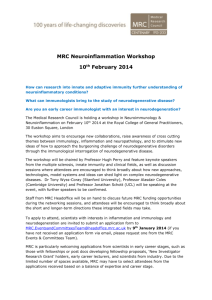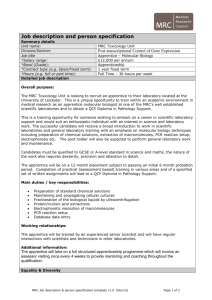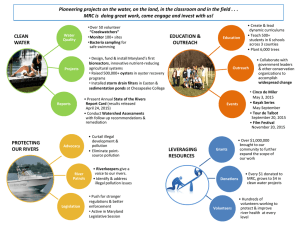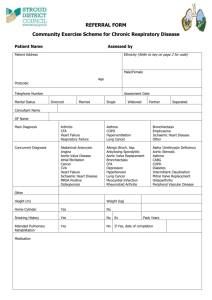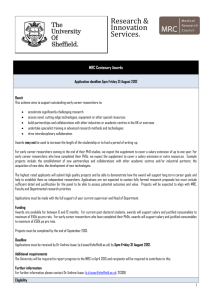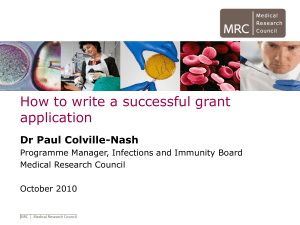PPT
advertisement
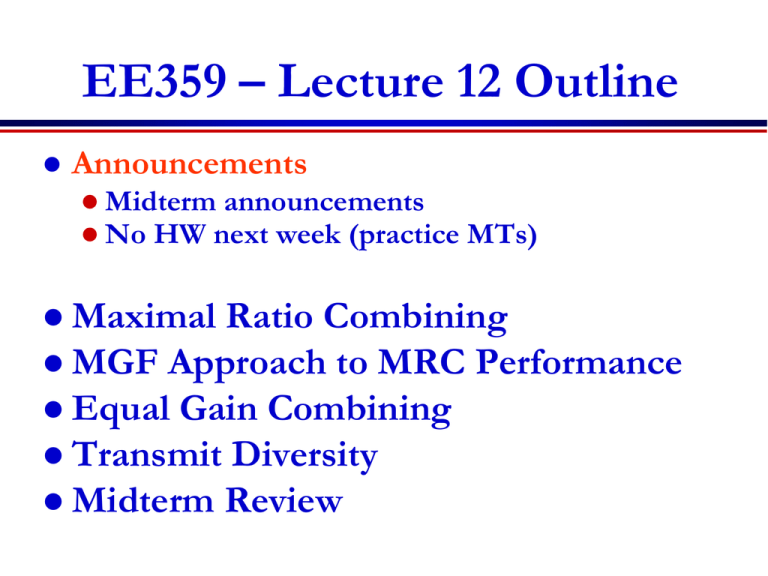
EE359 – Lecture 12 Outline Announcements Midterm announcements No HW next week (practice Maximal MTs) Ratio Combining MGF Approach to MRC Performance Equal Gain Combining Transmit Diversity Midterm Review Midterm Announcements Midterm Thur Nov. 10, 6-8pm, Room 200-030 Open book/notes (bring textbook/calculators) Covers Chapters 1-7 Review session Mon Nov. 6, 7-9pm. Hewlett 103 Extra OHs: Me: 11/7 11-12pm, 11/9 12-1pm, 11/10 11-12pm and by appt. Nima: 11/8 6-9pm, 11/9 2-3pm, 11/10 2-3pm No HW next week Midterms from past 3 MTs posted this week 10 bonus points for “taking” a practice exam Solns for all exams given when you turn in practice exam Review of Last Lecture Introduction to Diversity Send same bits over independent fading paths Time, space, frequency, or polarization diversity Combine paths to mitigate fading effects t Performance metrics: Array and Diversity gain Structure of a Diversity Combiner Combining Techniques Selection Combining and its Performance MRC and its Performance With MRC, gS=Sgi for branch SNRs gi Optimal technique to maximize output SNR Yields 20-40 dB performance gains Distribution of gS hard to obtain Standard average BER calculation Pb Pb (g S ) p(g S )dg S ... Pb (g S ) p(g 1 ) * p(g 2 ) * ...* p(g M )dg 1dg 2 ...dg M Hard to obtain in closed form Integral often diverges MGF Approach .5 M g Pb M i 2 ; g i d 0 i 1 sin 1 EGC and Transmit Diversity EGQ simpler than MRC Harder to analyze Performance about 1 dB worse than MRC Transmit diversity With channel knowledge, similar to receiver diversity, same array/diversity gain Without channel knowledge, can obtain diversity gain through Alamouti scheme: works over 2 consecutive symbols Main Points MRC optimally combines fading paths to maximize combiner SNR MRC vs SC trade off complexity for performance. MRC yields 20-40 dB gain, SC around 20 dB. Analysis of MRC simplified using MGF approach EGC easier to implement than MRC: hard to analyze: Performance about 1 dB worse than MRC Transmit diversity can obtain diversity gain even without channel information at transmitter. Midterm Review Overview of Wireless Systems Signal Propagation and Channel Models Modulation and Performance Metrics Impact of Channel on Performance Fundamental Capacity Limits Diversity Techniques


